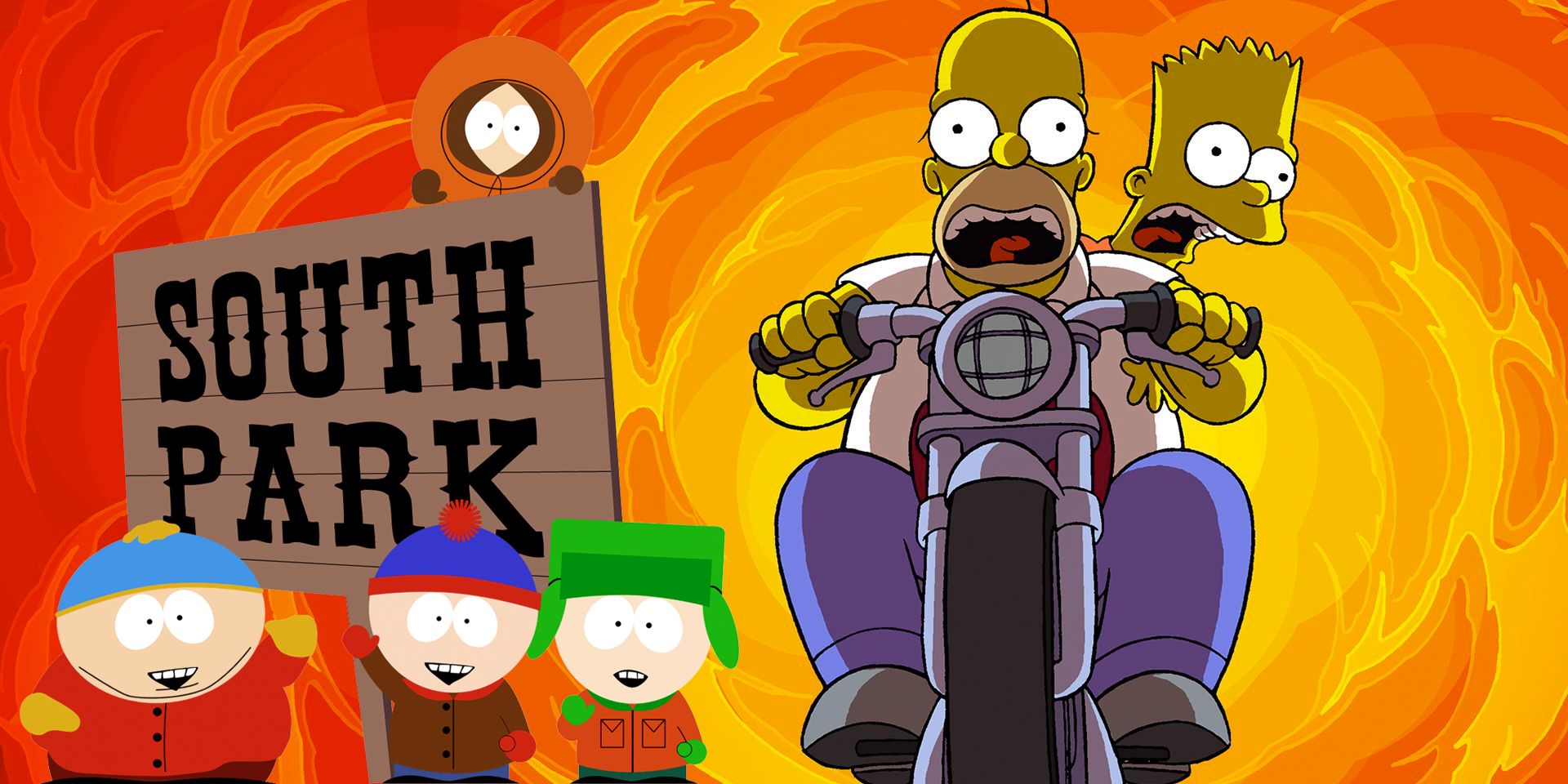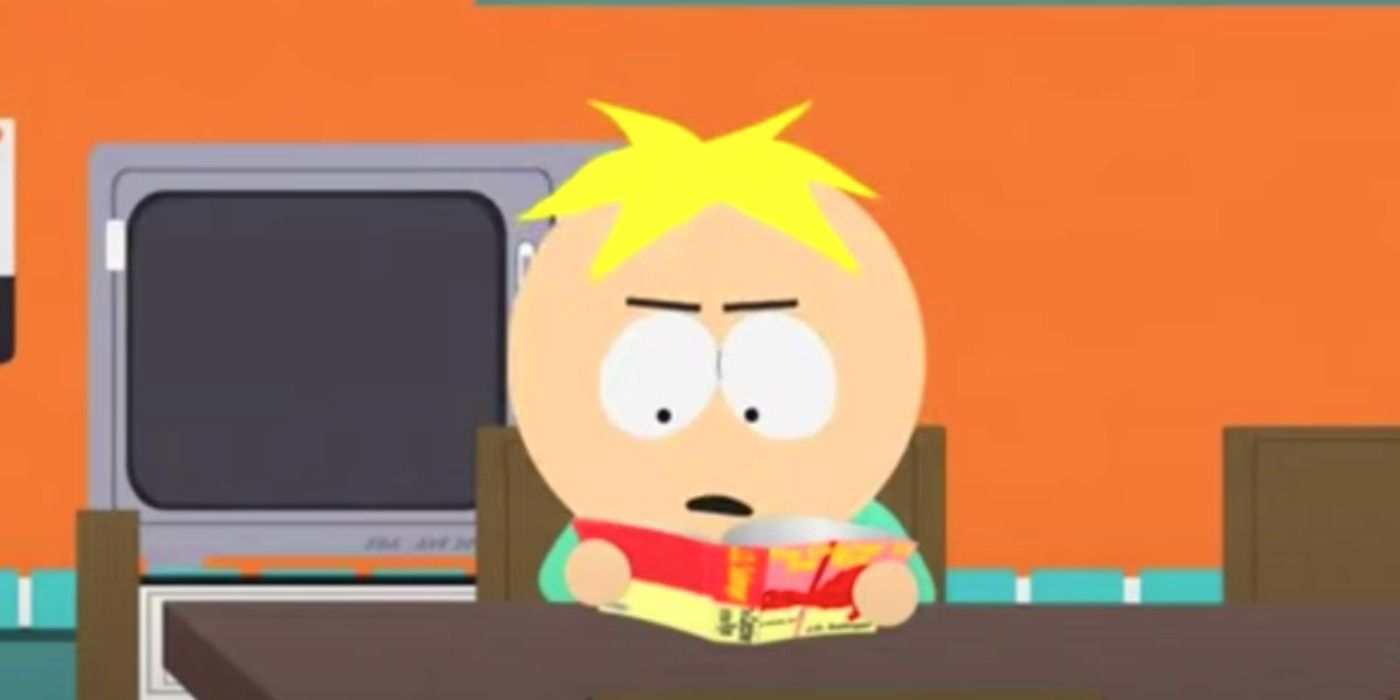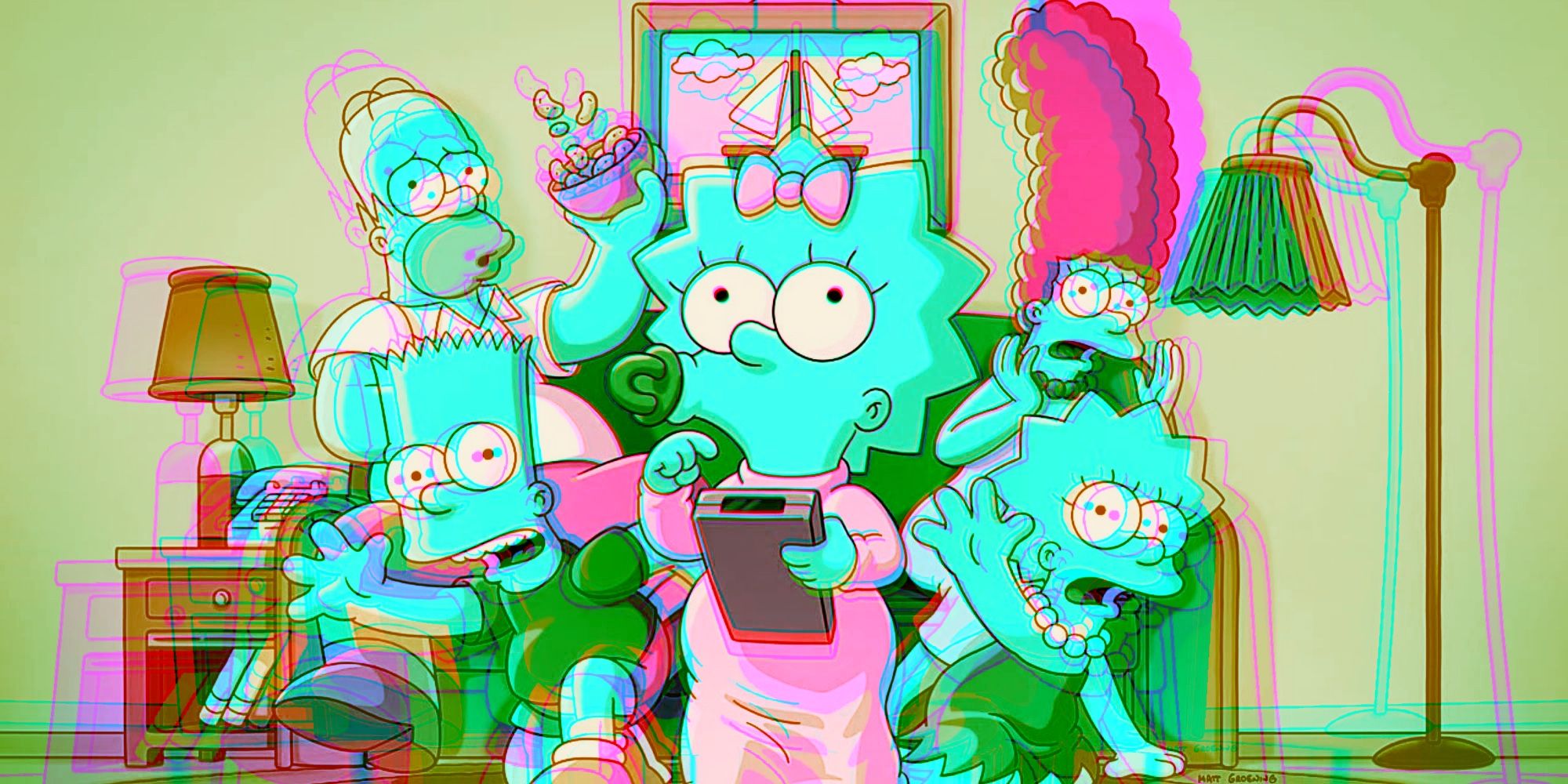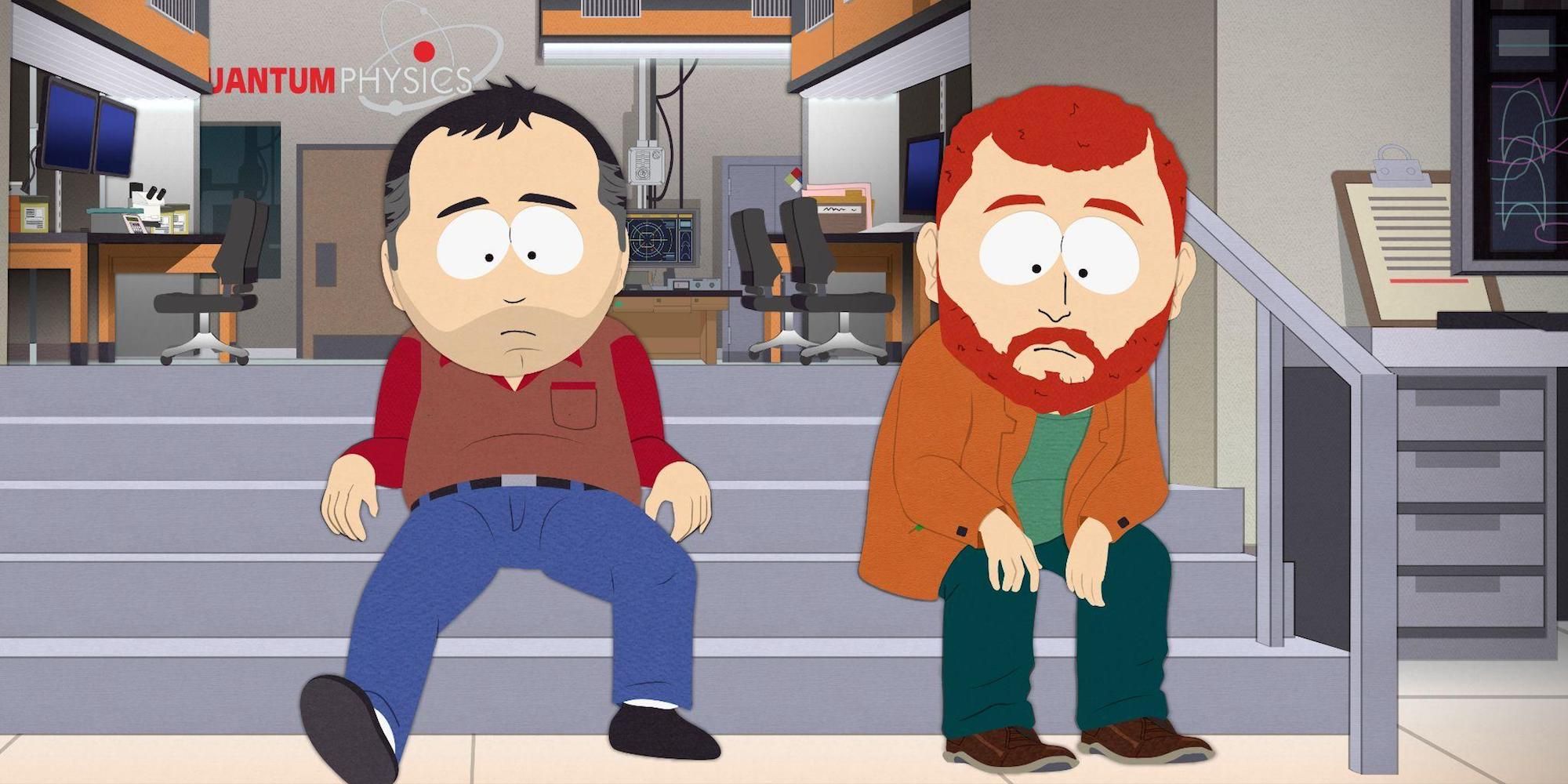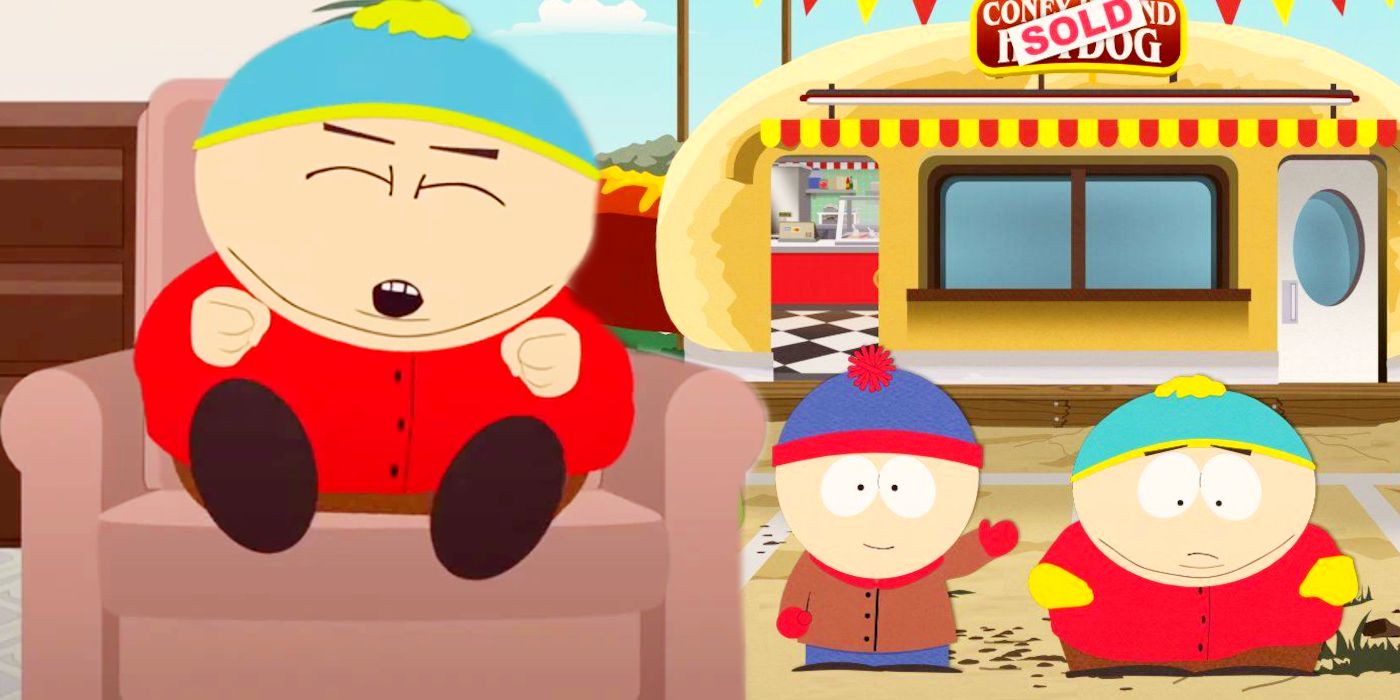The lengthy production of South Park’s new feature-length specials means that the long-running animated series may soon face a problem that has hounded its influential inspiration, The Simpsons, for decades. For all of the beloved show's strengths, The Simpsons is not great at pulling off timely satirical comedy. While the show has managed to stage some incredibly sharp topical comedy in its decades on the air (including Bart Simpson’s infamous rejoinder to George HW Bush calling out the Simpson family), The Simpsons has a broad reputation for making jokes about fads long after they have faded from relevance.
This is due to the long production process of The Simpsons, meaning that each episode of the show takes eight months to write, produce, animate, and air. While recent Simpsons episodes have added timely jokes just before their broadcast to work around this issue, these last-second additions earned more criticism than praise. In contrast, South Park’s status as one of television’s fastest-produced shows means it has been perfectly suited to political satire for decades now.
Where The Simpsons takes months to produce each episode, South Park takes less than one week. The vastly different production processes of the two shows mean that South Park has been used as a vehicle for timely, topical satire for years while The Simpsons has always struggled to make jokes about subjects that may well prove to be irrelevant by the time that a given episode airs. However, South Park’s feature-length movies, with their significantly longer production process, have jeopardized this delicate balance for the first time in years. Just as The Simpsons has begun adding timely jokes to the series in recent years, South Park has started relying on less intensely timely gags to allow for its longer production schedule. Now that South Park’s feature-length specials have seen the show switch to a format that takes months to produce, the series could become too slow to comment on current events. This problem has plagued The Simpsons for years and resulted in jokes that feel painfully outdated, but it doesn’t necessarily need to hamper South Park if the edgier show sticks to more perennially relevant topics.
Why South Park’s Timely Satire Works
Since an average episode of South Park is written, animated, and released within six days, the show can afford to tell some incredibly timely jokes. Episodes like South Park’s superb Russia/Ukraine satire would never work for a show with a multiple-month production process. While this quick-response strategy has also resulted in some dated South Park episodes over the years, the show’s fast turnaround remains a largely positive quality. Many of the weakest South Park episodes in recent years can blame their issues on lazy writing rather than a slow production process, whereas some of South Park’s greatest episodes have been all the stronger because of the show’s ability to comment on current events as they unfold.
Why The Simpsons Never Nailed Timely Jokes
The Simpsons has a more traditional eight-month turnaround time for each episode’s animation, resulting in the show airing Pokémon Go references in mid-2017 and Baby Shark jokes in December 2019. Combine this with another problem that late-season Simpsons episodes have, which is an excessive focus on celebrity guest stars, and the show becomes a terrible vehicle for political commentary. Since The Simpsons is interested in constantly attracting high-profile, big-name guest stars, the show goes out of its way to avoid particularly divisive provocative political takes and neuters its satire in the process. As a result, the only events that The Simpsons comments on are relatively anodyne, apolitical news stories like memes—which age rapidly and terribly—resulting in The Simpsons referencing now-irrelevant fads long after their cultural sell-by date has passed.
South Park’s Specials Take Time
South Park’s feature-length specials take months to write, animate and produce, and all that time makes it harder to make timely jokes. Before The Streaming Wars mocked climate change and the entertainment industry, even South Park’s earliest specials noted this issue. The Pandemic Special and South ParQ Vaccination Special mocked massive phenomena that risked becoming irrelevant before their respective specials aired, but they were so globally impactful that they were sure to not be forgotten fast. However, while this allowed the specials in question to avoid feeling irrelevant upon their initial release in 2020, it didn’t help their long-term standing as South Park outings. Where, for example, the beloved Imaginationland trilogy can still be revisited as a standalone special, few viewers are likely to be nostalgic for the pandemic and look back on the feature-length specials that South Park produced centering on the topic.
How South Park Avoided The Simpsons Problem
Fortunately for South Park viewers, the show’s most recent specials worked out how to solve the issue of timely topics aging poorly. The Streaming Wars took on global warming, while the Post Covid Saga made the interesting choice to jump forward to the future to mock big-picture social trends. Making jokes based on the crypto boom and post-pandemic malaise worked because, again, these weren’t passing fads, like Pokémon Go, but rather major news stories that dominated discourse for months. By broadening the remit of what South Park considers timely, the most recent feature-length specials managed to feel both up-to-date and timeless simultaneously.
However, South Park has only produced six of the 14 feature-length specials that the show promised Paramount Plus in 2021. While South Park season 26 could focus on weekly topics as the show’s conventional episodes have done for years, the next feature-length specials must endeavor to continue finding perennially relevant topics. Otherwise, South Park runs the risk of recreating the problem that has plagued The Simpsons for over a decade and could imperil the show’s re-watch potential by centering on subjects that are irrelevant before the special even airs. Since South Park’s darker political satire allows the show to take on heavier subjects than The Simpsons as a rule, there should not be any problem with future specials finding issues like climate change or economic disarray to mine for comedic gold. However, the potential that South Park’s specials could become the sort of satire that ages as badly as The Simpsons is still an ever-present possibility for the show’s creators.

